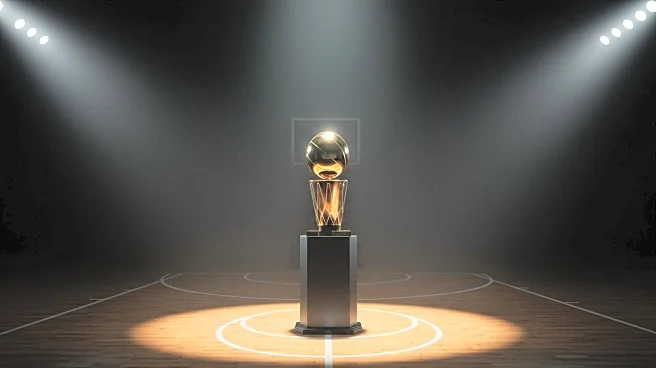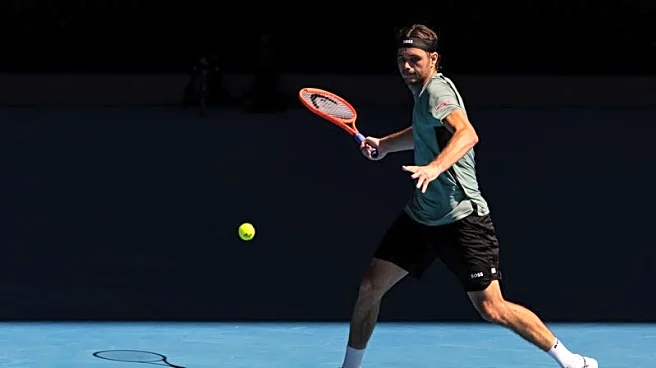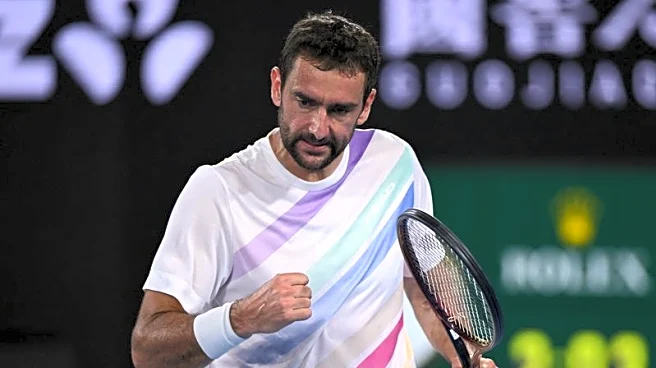What's Happening?
Cooper Flagg, the top pick in the NBA draft, is favored to win the Rookie of the Year award after being selected by the Dallas Mavericks. Flagg's entry into a competitive team environment is seen as advantageous, as he won't be required to carry the team alone. Other top lottery picks, Dylan Harper and VJ Edgecombe, were drafted by the San Antonio Spurs and Philadelphia 76ers, respectively, teams with established players that may limit their immediate impact. Flagg's odds of winning the award are strong, but historical precedents show that highly touted prospects like Zion Williamson and Anthony Davis have faced challenges in securing the title due to injuries or competition from other players.
Why It's Important?
The Rookie of the Year award is a significant accolade that can set the tone for a player's career in the NBA. Flagg's potential win could bolster the Mavericks' prospects and enhance his marketability. However, the competition from other rookies like Ace Bailey, Tre Johnson, and Kon Knueppel, who are joining rebuilding teams, could challenge Flagg's dominance. These players are expected to receive substantial playing time, which could increase their chances of outperforming Flagg. The dynamics of rookie performance can influence team strategies and player development, impacting the league's competitive landscape.
What's Next?
As the NBA season progresses, the performance of these rookies will be closely monitored. Teams will adjust their strategies based on the rookies' contributions, potentially altering their lineups to maximize talent. The Mavericks will likely focus on integrating Flagg into their system, while other teams may provide more opportunities for their rookies to shine. The outcome of the Rookie of the Year race will depend on how these players adapt to the professional level and the roles they are assigned by their teams.
Beyond the Headlines
The Rookie of the Year race highlights the importance of team context in a player's development. While individual talent is crucial, the environment and support provided by the team can significantly affect a rookie's success. This underscores the broader implications of draft strategies and player management in the NBA, where balancing immediate performance with long-term potential is key.











